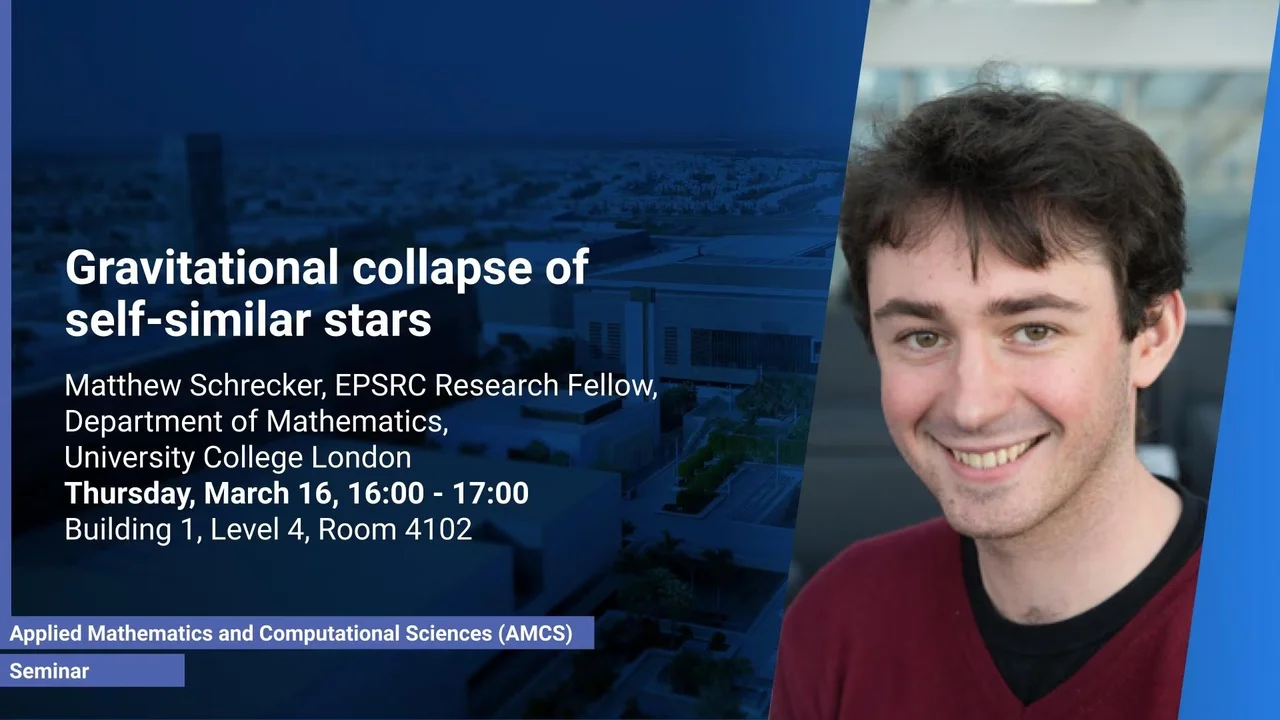
Gravitational Collapse of Self-similar stars
The Euler-Poisson equations give the classical model of a self-gravitating star under Newtonian gravity. It is widely expected that, in certain regimes, initially smooth initial data may give rise to blow-up solutions, corresponding to the collapse of a star under its own gravity. In this talk, I will present recent work with Yan Guo, Mahir Hadzic and Juhi Jang that demonstrates the existence of smooth, radially symmetric, self-similar blow-up solutions for this problem. I will also comment on the stability of the obtained solution. At the heart of the analysis is the presence of a sonic point, a singularity in the self-similar model that poses serious analytical challenges in the search for a smooth solution.
Overview
Abstract
The Euler-Poisson equations give the classical model of a self-gravitating star under Newtonian gravity. It is widely expected that, in certain regimes, initially smooth initial data may give rise to blow-up solutions, corresponding to the collapse of a star under its own gravity. In this talk, I will present recent work with Yan Guo, Mahir Hadzic and Juhi Jang that demonstrates the existence of smooth, radially symmetric, self-similar blow-up solutions for this problem. I will also comment on the stability of the obtained solution. At the heart of the analysis is the presence of a sonic point, a singularity in the self-similar model that poses serious analytical challenges in the search for a smooth solution.
Brief Biography
Matthew Schrecker is currently an EPSRC Post-doctoral research fellow at University College London. Previously, he held a Van Vleck Visiting Assistant Professorship at the University of Wisconsin-Madison after completing his DPhil at the University of Oxford in 2018. His academic interests are in non-linear PDE theory, working especially on singular solutions in hyperbolic PDE arising from fluid dynamics.